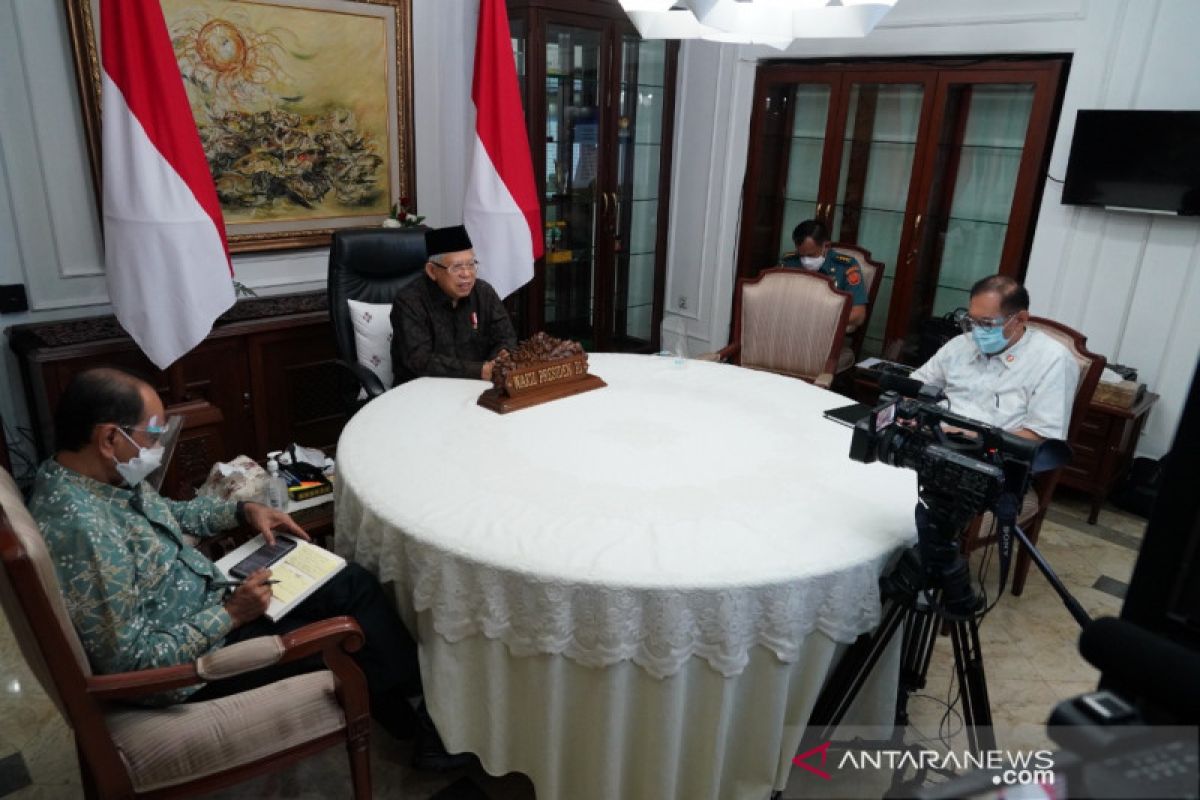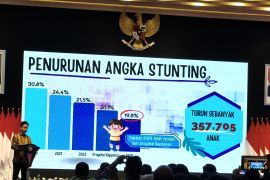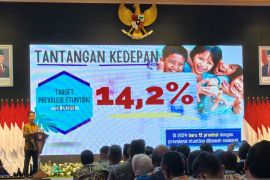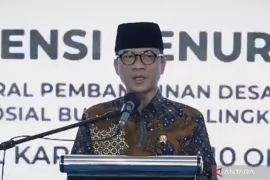"With a strong commitment from regional heads, prevention of stunting can be made a development priority in the region, and to this end, all necessary resources can be mobilized," Amin noted during his opening remarks at a virtual technical coordination meeting to discuss acceleration of stunting prevention here on Wednesday.
The central government has allotted huge budgets and implemented various programs along with local regional authorities to speed up the reduction of stunting in regions, Amin, concurrently chairman of the National Team for the Acceleration of Poverty Reduction (TNP2K), remarked.
In general, management of stunting encompasses specific nutritional interventions by improving nutrition and health in addition to sensitive nutrition interventions, such as the provision of clean water and sanitation.
Both have a 70-percent role in the overall efforts to manage the problem of stunting to reduce its prevalence among children.
Meanwhile, Finance Minister Sri Mulyani Indrawati affirmed that the Government had allocated Rp27.5 trillion in expenditures offered to ministries/institutions (K/L) for accelerating reduction in stunting.
The funds, included in the State Budget (APBN), are to be spent by 20 ministries and institutions (K/L) responsible for reaching 86 outputs in order to reduce stunting rates in 260 districts and cities.
"The K/L expenditure, amounting to Rp27.5 trillion, comprises Rp1.8 trillion for specific interventions, Rp24.9 trillion for sensitive interventions, and Rp800 billion for coordination support. We are optimistic that this huge budget will actually have a beneficial impact in reducing the number of stunted children in Indonesia," the minister noted.
In addition to K/L spending, the government allocated funds for local governments, through Transfer to Regions and Village Funds (TKDD), to support the acceleration of integrated stunting handling efforts.
The government targets to reduce the national stunting prevalence rate to 14 percent by 2024. In 2013, the stunting rate in children in Indonesia was recorded at 37.2 percent, and this figure continued to decline to 30.8 percent in 2018.
Referring to the Health Ministry’s data, in 2019, some 27.7 percent, or around 6.5 million children under the age of five in Indonesia were stunted. Related news: Central Sulawesi striving to eradicate childhood stunting
Related news: Government ensures sufficient nutrient intake for mothers, children
Translator: Fransiska N, Fardah
Editor: Rahmad Nasution
Copyright © ANTARA 2020












